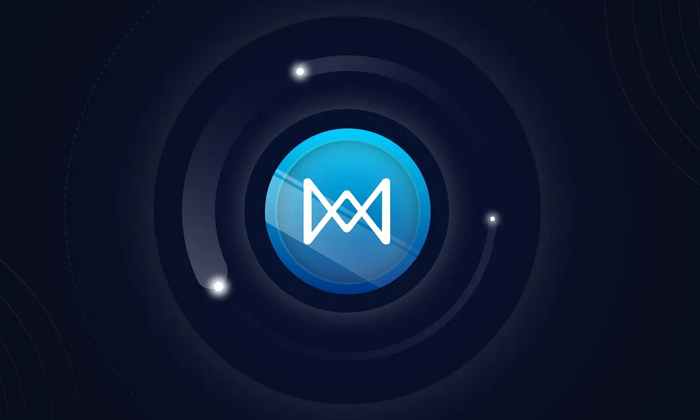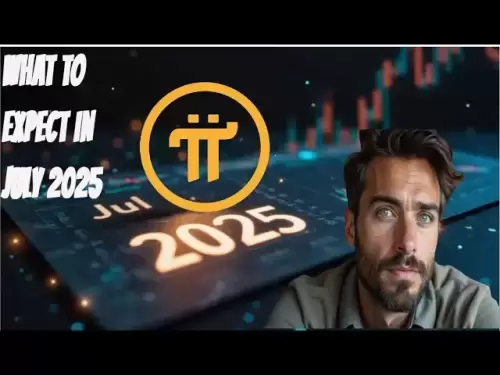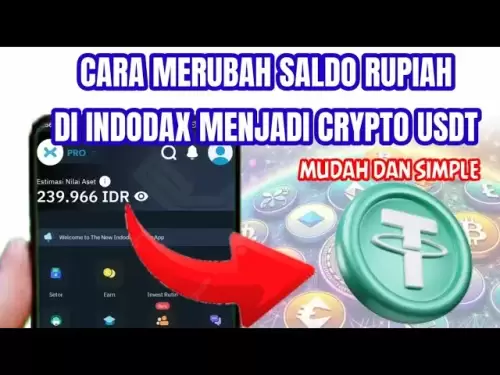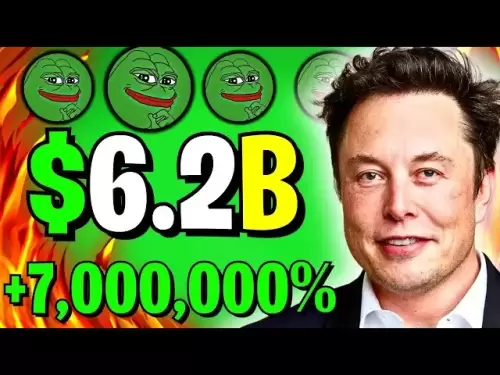-
 Bitcoin
Bitcoin $107,443.3008
-1.17% -
 Ethereum
Ethereum $2,494.2503
-0.63% -
 Tether USDt
Tether USDt $1.0003
0.00% -
 XRP
XRP $2.2496
2.23% -
 BNB
BNB $658.7569
0.63% -
 Solana
Solana $154.9826
1.94% -
 USDC
USDC $1.0000
0.01% -
 TRON
TRON $0.2799
1.07% -
 Dogecoin
Dogecoin $0.1659
-1.78% -
 Cardano
Cardano $0.5745
0.25% -
 Hyperliquid
Hyperliquid $39.7005
0.13% -
 Bitcoin Cash
Bitcoin Cash $519.5989
3.78% -
 Sui
Sui $2.7874
-2.40% -
 Chainlink
Chainlink $13.3762
-1.69% -
 UNUS SED LEO
UNUS SED LEO $9.0784
-0.64% -
 Avalanche
Avalanche $17.9846
-2.81% -
 Stellar
Stellar $0.2390
-0.06% -
 Toncoin
Toncoin $2.9028
0.25% -
 Shiba Inu
Shiba Inu $0.0...01147
-2.17% -
 Litecoin
Litecoin $86.6956
-1.27% -
 Hedera
Hedera $0.1508
-0.50% -
 Monero
Monero $322.6222
3.26% -
 Polkadot
Polkadot $3.4124
-2.99% -
 Dai
Dai $0.9999
0.00% -
 Bitget Token
Bitget Token $4.5434
-1.97% -
 Ethena USDe
Ethena USDe $1.0002
0.00% -
 Uniswap
Uniswap $7.1562
-2.61% -
 Aave
Aave $275.8830
-1.02% -
 Pepe
Pepe $0.0...09790
-4.04% -
 Pi
Pi $0.5018
-5.09%
Is QuarkChain(QKC) currency worth buying?
QuarkChain's sharding technology, scalability potential, and solid team suggest its QKC currency holds promising investment opportunities, but it's crucial to assess market volatility and regulatory factors before investing.
Nov 29, 2024 at 12:58 pm

Is QuarkChain (QKC) Currency Worth Buying?
QuarkChain (QKC) is a blockchain platform that has garnered attention for its innovative sharding technology. It aims to address scalability issues faced by many blockchain networks by distributing network operations across multiple shards, ultimately enhancing transaction throughput and network performance. This in-depth analysis delves into the potential value and considerations associated with investing in QKC currency, providing a comprehensive overview:
Key Considerations:
- Sharding Technology: QuarkChain's strength lies in its unique sharding mechanism, known as "Two-Layered Blockchain Architecture." This architecture divides the blockchain into multiple shards, creating a highly scalable and efficient network. Each shard operates independently, processing transactions in parallel, reducing network congestion and improving throughput.
- Scalability and Transaction Speed: The sharding architecture allows QuarkChain to handle a massive volume of transactions, potentially reaching millions of transactions per second. This scalability advantage positions it as a viable solution for high-throughput applications and enterprise-level use cases.
- Security and Decentralization: Despite its sharding approach, QuarkChain maintains a high level of security through its consensus mechanism. It employs a variation of the Proof-of-Work (PoW) algorithm, known as "Randomized Proof-of-Work (RPOW)," to validate transactions and ensure network integrity.
Evaluation of Investment Potential:
- Market Performance: Over the past year, the QKC token has demonstrated significant volatility, mirroring the broader cryptocurrency market trends. However, it has shown resilience during market downturns and exhibited potential for growth during bullish periods.
- Competitive Landscape: QuarkChain faces competition from other sharding-based blockchain platforms, including Near Protocol (NEAR) and Harmony (ONE). Each platform has its unique advantages and target markets, making it essential to assess their respective strengths and weaknesses when evaluating QKC's investment potential.
- Team and Development: The QuarkChain team comprises experienced professionals with a strong track record in distributed systems and blockchain technology. The team's commitment to innovation and continuous development is a positive indicator for the platform's long-term prospects.
- Adoption and Partnerships: The extent to which QuarkChain is adopted by developers, businesses, and end-users is crucial for its growth and sustainability. Strategic partnerships and integrations with leading industry players can accelerate adoption and drive demand for QKC.
- Regulatory Environment: The regulatory landscape surrounding cryptocurrencies and blockchain technology is constantly evolving. It is important to stay informed about regulatory developments that may impact the value and legality of QKC.
Conclusion:
Whether or not QKC is a worthwhile investment depends on an individual's risk tolerance, investment horizon, and assessment of the platform's potential. Its innovative sharding technology, scalability advantage, and experienced team are positive indicators for its long-term prospects. However, market volatility, competition, and regulatory uncertainty remain factors that investors should carefully consider before making any investment decisions.
Disclaimer:info@kdj.com
The information provided is not trading advice. kdj.com does not assume any responsibility for any investments made based on the information provided in this article. Cryptocurrencies are highly volatile and it is highly recommended that you invest with caution after thorough research!
If you believe that the content used on this website infringes your copyright, please contact us immediately (info@kdj.com) and we will delete it promptly.
- Rare Find: The 2p Coin Error Worth £1,000!
- 2025-07-01 14:30:12
- Bitcoin Price Rollercoaster: Trump vs. Musk, and What It Means for Your Crypto
- 2025-07-01 14:30:12
- German Banks, Crypto Trading, and FOMO: A New Era?
- 2025-07-01 14:35:12
- XRPL, Token Tracker, and XRP Holders: Navigating Security, Innovation, and Future Wealth
- 2025-07-01 15:10:12
- ETF Approval, Crypto, and Institutional Investment: A New Era?
- 2025-07-01 15:10:12
- Bitcoin Breakout Incoming? July Patterns Hint at Historic Rally!
- 2025-07-01 14:50:12
Related knowledge

How to customize USDT TRC20 mining fees? Flexible adjustment tutorial
Jun 13,2025 at 01:42am
Understanding USDT TRC20 Mining FeesMining fees on the TRON (TRC20) network are essential for processing transactions. Unlike Bitcoin or Ethereum, where miners directly validate transactions, TRON uses a delegated proof-of-stake (DPoS) mechanism. However, users still need to pay bandwidth and energy fees, which are collectively referred to as 'mining fe...

USDT TRC20 transaction is stuck? Solution summary
Jun 14,2025 at 11:15pm
Understanding USDT TRC20 TransactionsWhen users mention that a USDT TRC20 transaction is stuck, they typically refer to a situation where the transfer of Tether (USDT) on the TRON blockchain has not been confirmed for an extended period. This issue may arise due to various reasons such as network congestion, insufficient transaction fees, or wallet-rela...

How to cancel USDT TRC20 unconfirmed transactions? Operation guide
Jun 13,2025 at 11:01pm
Understanding USDT TRC20 Unconfirmed TransactionsWhen dealing with USDT TRC20 transactions, it’s crucial to understand what an unconfirmed transaction means. An unconfirmed transaction is one that has been broadcasted to the blockchain network but hasn’t yet been included in a block. This typically occurs due to low transaction fees or network congestio...

How to check USDT TRC20 balance? Introduction to multiple query methods
Jun 21,2025 at 02:42am
Understanding USDT TRC20 and Its ImportanceUSDT (Tether) is one of the most widely used stablecoins in the cryptocurrency market. It exists on multiple blockchain networks, including TRC20, which operates on the Tron (TRX) network. Checking your USDT TRC20 balance accurately is crucial for users who hold or transact with this asset. Whether you're sendi...

What to do if USDT TRC20 transfers are congested? Speed up trading skills
Jun 13,2025 at 09:56am
Understanding USDT TRC20 Transfer CongestionWhen transferring USDT TRC20, users may occasionally experience delays or congestion. This typically occurs due to network overload on the TRON blockchain, which hosts the TRC20 version of Tether. Unlike the ERC20 variant (which runs on Ethereum), TRC20 transactions are generally faster and cheaper, but during...

The relationship between USDT TRC20 and TRON chain: technical background analysis
Jun 12,2025 at 01:28pm
What is USDT TRC20?USDT TRC20 refers to the Tether (USDT) token issued on the TRON blockchain using the TRC-20 standard. Unlike the more commonly known ERC-20 version of USDT (which runs on Ethereum), the TRC-20 variant leverages the TRON network's infrastructure for faster and cheaper transactions. The emergence of this version came as part of Tether’s...

How to customize USDT TRC20 mining fees? Flexible adjustment tutorial
Jun 13,2025 at 01:42am
Understanding USDT TRC20 Mining FeesMining fees on the TRON (TRC20) network are essential for processing transactions. Unlike Bitcoin or Ethereum, where miners directly validate transactions, TRON uses a delegated proof-of-stake (DPoS) mechanism. However, users still need to pay bandwidth and energy fees, which are collectively referred to as 'mining fe...

USDT TRC20 transaction is stuck? Solution summary
Jun 14,2025 at 11:15pm
Understanding USDT TRC20 TransactionsWhen users mention that a USDT TRC20 transaction is stuck, they typically refer to a situation where the transfer of Tether (USDT) on the TRON blockchain has not been confirmed for an extended period. This issue may arise due to various reasons such as network congestion, insufficient transaction fees, or wallet-rela...

How to cancel USDT TRC20 unconfirmed transactions? Operation guide
Jun 13,2025 at 11:01pm
Understanding USDT TRC20 Unconfirmed TransactionsWhen dealing with USDT TRC20 transactions, it’s crucial to understand what an unconfirmed transaction means. An unconfirmed transaction is one that has been broadcasted to the blockchain network but hasn’t yet been included in a block. This typically occurs due to low transaction fees or network congestio...

How to check USDT TRC20 balance? Introduction to multiple query methods
Jun 21,2025 at 02:42am
Understanding USDT TRC20 and Its ImportanceUSDT (Tether) is one of the most widely used stablecoins in the cryptocurrency market. It exists on multiple blockchain networks, including TRC20, which operates on the Tron (TRX) network. Checking your USDT TRC20 balance accurately is crucial for users who hold or transact with this asset. Whether you're sendi...

What to do if USDT TRC20 transfers are congested? Speed up trading skills
Jun 13,2025 at 09:56am
Understanding USDT TRC20 Transfer CongestionWhen transferring USDT TRC20, users may occasionally experience delays or congestion. This typically occurs due to network overload on the TRON blockchain, which hosts the TRC20 version of Tether. Unlike the ERC20 variant (which runs on Ethereum), TRC20 transactions are generally faster and cheaper, but during...

The relationship between USDT TRC20 and TRON chain: technical background analysis
Jun 12,2025 at 01:28pm
What is USDT TRC20?USDT TRC20 refers to the Tether (USDT) token issued on the TRON blockchain using the TRC-20 standard. Unlike the more commonly known ERC-20 version of USDT (which runs on Ethereum), the TRC-20 variant leverages the TRON network's infrastructure for faster and cheaper transactions. The emergence of this version came as part of Tether’s...
See all articles

























































































